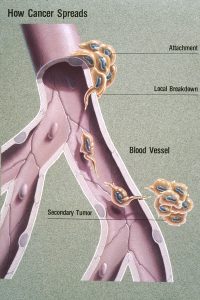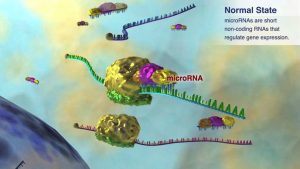When I was 8 years old, my friend’s mother was diagnosed with breast cancer. Several years later her aunt was also diagnosed with breast cancer. For my friend, developing cancer is not imminent, however the thought of developing cancer is a terrifying idea for her. There is no doubt that almost everyone knows someone in their life who has been diagnosed by cancer, whether it be a family member, a friend, or an acquaintance. In my opinion, to fight against cancer the only way is to entrust the development of cures to the scientific community.
Cancer is menacing disease caused via changes to genes that control the way cells function. In the 21st century cancer has been the most renowned disease. The mortality rate of this disease is no laughing matter as an estimated 1,685,210 patients will be diagnosed with cancer and of those, 595,690 will die during 2016 in the United States alone. While many researchers are feverishly looking for cancer cures that kills cancer, others have been investigating methods to halt cancer from spreading throughout a patient’s body. MIT’s Natalie Artzi, a research scientist at MIT’s Institute for Medical Engineering and Science (IMES), and Tel-Aviv University’s Noam Shomrom have developed a new technique that may help prevent cancer metastasis.

Cancer Metastasis, courtesy of Wikimedia Commons
Metastasis is the spread of malignant cells from one organ or part of the body to another. Artzi and Shomrom’s new gene therapy technique involves applying microRNAs to cancer tumours. MicroRNAs are cellular RNA fragments that prevents the production of a particular protein. In their research Artzi and Shomrom identified that the protein Palladin plays a key role in the metastasis of breast cancer cells. Their experiments led to the discovery that miR-96 and miR-182, types of microRNAs, decreased the expression of Palladin, thus hampering the cancer cells capabilities to spread.

microRNA, courtesy of Andres Zapata https://vimeo.com/52646065
With this new gene therapy technique in development, many types of cancers can be halted so long as the correct microRNAs are applied to the cancer sites. I feel that this research is an immense step towards defeating cancer. Artzi and Shomon’s technique coupled with already known cancer treatments, such as chemotherapy, can effectively halt the metastasis of early-stage cancer tumours. Thus, potentially saving thousands of patients in the United states, and millions around the world. Nonetheless, cancer would likely never be extinct until a definitive cure is found. However as members of the scientific community, we must do our best in following Artzi and Shomon’s footsetps by developing new techniques and treatments in hopes of saving the lives of people we know.
– Nelson Yu
